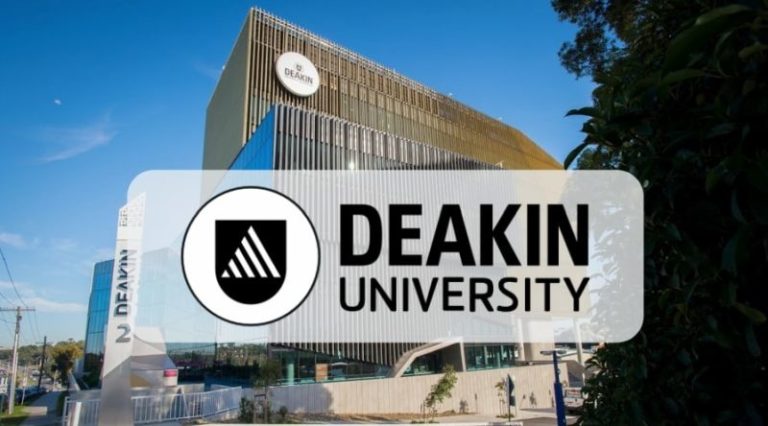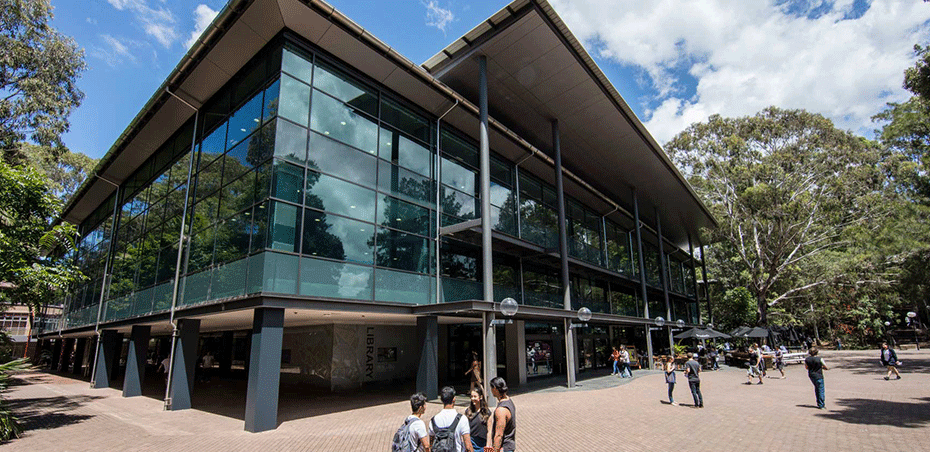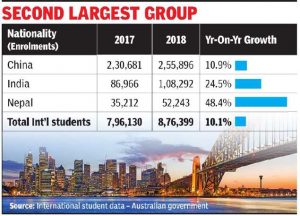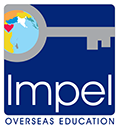Studying online at Deakin:
Apply Online @ https://www.impeloverseas.com/students-corner/apply-online/
Post Study work rights for Indian Students in Australia
The Post-study Work stream of the subclass 485 visa is for international students with eligible qualifications, regardless of their field of study. You must have also met the Australian study requirement within the past six months, which means:
- your course is CRICOS-registered
- you successfully completed all course requirements
- your study was in English
- you completed your study over at least two academic years (92 weeks)
- you were physically in Australia for at least 16 calendar months to complete the study
- you held an Australian visa that allowed you to study
Qualifications
The qualification that you have completed must be an eligible degree. This means a:
- bachelor degree
- bachelor (honours) degree
- masters by coursework degree
- masters (extended) degree
- masters by research degree
- doctoral degree
If you have studied a standalone diploma or trade qualification, you are not eligible eligible to be granted a visa in this stream.
NSW announces $20m housing fund for international students
The New South Wales government has announced that it will fund temporary crisis accommodation for international students who are facing hardship due to Covid-19. The $20m relief package will include a temporary housing scheme and student support services.
Minister for Skills and Tertiary Education Geoff Lee said helping international education meant helping the whole state of NSW.
“International students are an integral part of our communities and our economy,” Mr Lee said.
“Thousands of families around the state depend on the sector – whether through direct employment, homestays or other services.
“The package includes a temporary housing scheme, targeted at students in genuine need and delivered through approved student accommodation or homestay providers.
“It also provides increased support via the International Legal Service NSW, making available 50,000 free subscriptions to the multilingual My Legal Mate student app”.
A new 24/7 international student support service, through the NSW Government COVID-19 hotline (13 77 88), will offer free advice and information about other measures, including the moratorium on rental evictions and medical, mental health, legal and emergency support.
Mr Lee said international students make a huge contribution to NSW and deserve a helping hand.
“Many have lost their part-time jobs, are unable to return to their home countries and do not qualify for Commonwealth Government support programs,” he said.
“The additional support being announced today complements efforts of our education institutions, highlighted by a combined $180 million commitment from NSW universities for their international and domestic students.”
Council of International Students Australia (CISA) president Ahmed Ademoglu welcomed the announcement.
“We are pleased to see the NSW Government focus on crisis accommodation for vulnerable international students, which is something that we as an association have been calling for,” Mr Ademoglu said.
Source: https://www.nsw.gov.au/news/nsw-government-supporting-international-students-through-covid-19
Scott Morrison opens the door for international students to return to Australia
The federal government has confirmed it will consider exempting international students from Australia’s travel ban as early as July.
Prime Minister Scott Morrison revealed a national three-stage framework out of coronavirus restrictions on Friday that opened the door for overseas-based students to return to Australian universities.
While specifics around the exemption have not been outlined, Mr Morrison said it would only be done if strict quarantine restrictions were met.
“Issues of international students, you’ll note that it does come into the third step of the plan, that is a possibility,” he said.
“We are open to that, and we would be working with institutions to see how that could be achieved.
“But it must be done according to those strict quarantine restrictions and how that’s done, and how those costs are met.”
At least 10 per cent of international students enrolled at Australian institutions are stuck overseas with the industry worth $40 billion a year to the economy.
Australian universities are expected to record large losses as a result of forced campus closures and border restrictions.
The international education lobby has been pushing for an exemption to travel bans for international students.
“Clearly without any international students coming into the country, Australia’s fourth-biggest industry is in a major crisis,” International Education Association of Australia CEO Phil Honeywood said.
National COVID-19 Coordination Commission Chair Nev Power stressed the importance of rebooting education as quickly as possible and suggested the possibility of university-funded charter flights to bring overseas students back to Australia.
“There is an opportunity for the universities to work with the government to provide safe processes … expedite those visas, get those international students back here as quick as possible,” Mr Power told the Australian Financial Review.
“We’ll need to put quarantine provisions in. We’ll need to make sure that unis are reconfigured to incorporate safe practices. But that way we can accelerate that because right now, this academic year, you could have them back.”
However, the uncertainty faced by international students has left many considering if it is worth committing to another semester in Australia.
Belle Lim of the Council of International Students Australia said some students were choosing to defer their studies.
“The next semester is starting soon, some of them have received a conditional offer but they don’t know if they should take it,” she said.
“They don’t know if they can come back to Australia in time.”
The peak body for Australian universities insists any rush for a return to face-to-face teaching will need to meet strict medical guidelines.
“The health of our student and staff body is always the number one priority,” Universities Australia CEO Catriona Jackson said.
“None of this happens if we don’t get the OK to do so from health authorities.”
Deakin announces up to $25 million in hardship support for international students

Deakin has announced up to $25 million in additional targeted support for international students experiencing hardship as a result of COVID-19.
Vice-Chancellor Professor Iain Martin said the support for impacted international students was available for the next six months and in addition to the financial assistance for domestic students.
“Many international students, through no fault of their own, are struggling with the costs of living and studying, yet are not eligible for the same Government COVID-19 assistance available to our domestic students,” Professor Martin said.
“Some of those students face a very desperate situation where their part-time and casual work is gone or drying up, and they can’t return home yet can’t afford to stay. This is an untenable position.
“With no access to Government assistance, our additional hardship support will prevent students from falling through the cracks during the difficult months ahead. We stand shoulder-to-shoulder with our international students.”
Professor Martin said the hardship support for international students was available through Deakin’s existing support services and that the University would continue to take a case-managed, individual approach to assist.
“When students connect to our support services, we are talking one-on-one to identify how we can best help that student continue their studies at Deakin,” he said.
“That direct conversation is the best way to determine specific and unexpected personal circumstances and tailor our support as necessary. So far, we have approved more than 1200 requests for immediate financial and hardship support, with hundreds more applications currently being assessed.
“My message to every Deakin student is that if COVID-19 has made it hard for you to continue your studies, then please step forward and let us know.
“We want our international students to continue at Deakin, and as of this week, more than 95 per cent remain enrolled. I hope this additional support will keep it that way. Of course, should an international student decide they simply cannot continue, we will support that decision and help with either a transition to online study or by holding their place for the future.”
Further flexibility and supports for Deakin students include:
- Additional time to change enrolment or withdraw from a course without incurring any penalty. The two-week Census grace period remains in-place until Wednesday 15 April 2020. Deakin has also extended the time for late withdrawals until 1 June 2020.
- The extension period for assignment due dates has been extended to up to three weeks, with medical certificates no longer required. It is also easier for students to apply for special consideration.
- The T1 exam period will continue as planned with online assessments.
For more information about Deakin’s student supports, visit: https://www.deakin.edu.au/students/enrolment-fees-and-money/financial-assistance/covid-19-financial-assistance
Deakin First Australian University To Offer Accredited Cyber Security Courses

Deakin will be the first university in Australia to offer a fully accredited cyber security qualification, under Australia’s first cyber security course accreditation scheme.
The Australian Computer Society (ACS) is the only body in Australia with the power to accredit IT courses, and has recently added cyber security to its accreditations.
While cyber security courses are currently offered at many universities and other educational institutions across Australia, until now none of these courses have been accredited by an external and independent body.
ACS accreditation means that universities and other institutions offering cyber security courses will have to meet a series of accreditation standards set by the ACS, developed in consultation with government and industry.
Deakin’s School of Information Technology has been offering a Bachelor and a Master in Cyber Security over the past three years, however the new accreditation elevates the rigour and status of the courses significantly, with Deakin achieving stringent accreditation standards.
Professor Karen Hapgood, Deakin’s Executive Dean of Science Engineering and Built Environment, said Deakin’s new cyber security accreditation demonstrated the high quality and academic integrity of its cyber security courses.
“Deakin is proud to be able to offer students a fully accredited cyber security course that will be recognised industry-wide and overseas,”Professor Hapgood said.
“It certainly endorses the high quality curriculum and the high quality of academic staff teaching our courses, and validates Deakin’s decision last year to update its cyber security courses in line with industry and world needs.
“As cyber security becomes more important to our national and global security than ever before, it is vital that students can take comfort that they are being taught at the highest possible level.”
ACS President Yohan Ramasundara said ACS has long been recognised as the accrediting body for technology-related degrees and post-graduate qualifications related to initial professional practice.
“With the growing need for expertise in cyber security for our evolving and growing digital economy, introducing recognition for specialist cyber security qualifications and expertise was a must,” Mr Ramasundara said.
Around 500 students study a Bachelor or Master of Cyber Security at Deakin each year, with an average annual intake of 150 students.
International success in latest higher education rankings
UOW researchers crucial in University’s rise to position 238 in world

The University of Wollongong (UOW) improved its rank and score in the 2020 Times Higher Education (THE) World University rankings announced on Thursday morning.
UOW rose an estimated five positions from 243 in 2019 to 238 in 2020, continuing on its ascension path laid in recent years.
THE rankings measures universities on their teaching, research income and reputation, citations, international outlook, and knowledge transfer to industry.
In a year, UOW’s overall score lifted from 50 to 50.5, following a better performance in research, industry income and international outlook indicators.
UOW researchers were integral to the University’s success in the 2020 rankings, as the research indicator has the greatest bearing on a university’s overall score.
UOW Acting Vice-Chancellor Professor Jenny Martin said UOW had increased its standing thanks to the hard work of academics and staff.
“We’re proud to see the University of Wollongong again climb in international rankings,” Professor Martin said.
“These results are the fruits of the continuing commitment of UOW staff, and I want to acknowledge their hard work.
“Our researchers continue to lead the way in producing quality, impactful research that leads to positive economic and social outcomes.
“The high quality research taking place, both independently and in collaboration with partner institutions around the world, is strengthening our academic reputation.”
The University’s formidable result comes in a competitive environment, both nationally and further afield.
Nearly two thirds of Australian universities rose in the 2020 THE World University rankings.
As the Australian university sector improved markedly, UOW moved from equal 11th to equal 12th in Australia.
Source: https://www.uow.edu.au/media/2019/international-success-in-latest-higher-education-rankings.php
Indian students enrolling in Australia surged 25% in 2018
MUMBAI: More than one lakh students from India enrolled in Australian educational institutions during 2008, constituting 12.4 per cent over the previous calendar year. China continued to lead with 2.56 lakh students (or 29 percent of the total).
Australia has announced an ‘Additional temporary Graduate’ visa with an extra year of post-study work rights for international students who graduate from the regional campus of a registered university. At present, students who study at the bachelor’s or master’s degree level in Australia (usually 2 or 3 years) get a two-year post-study work visa. By offering students an extra year in Australia on a post-study work visa if they study in regional areas, the country aims to kill two birds with one stone.

The ‘additional temporary graduate’ visa by Australia to the international students will help in its overall plan to decongest popular areas of Sydney, Melbourne, Perth, Brisbane and the Gold Coast. It will also help attract more international students.
As students need to graduate from a regional campus and then spend at least two years residing in a regional area to qualify, the ‘Additional Temporary Graduate’ visa will be available to the first eligible cohort of graduates from 2021, states a recent release from Australia’s department of home affairs. For those students who are currently holding the Temporary Graduate (sub class 485) visa, which is the existing post-study work visa, ongoing residence in a regional area could qualify them for an additional year.
In a separate release dated March 20, Pm Scott Morrison announced new tertiary scholarships to attract Australian and international students to study in regional Australia. Worth Australian $15,000, these scholarships will be available to more than 1,000 local and international students each year.
Zahirah Ismail, Perth-based managing directior at the immigration service company Home of Visas, told TOI:” An additional year for graduates shows that policy-makers are acknowledging the difficulties faced by students as they attempt to gain relevant work experience. In several occupations, in order for an applicant to gain positive skills assessment, they are required to demonstrate at least three years of relevant work experience post their qualification. “she recommends that international students should look at employment prospects for each territory and best match this data against occupation lists for migration purposes.
Andrew Everett, deputy vice-chancellor and vice president, global strategy, at Charles darwin University, said:”CDU is examining how best to provide for international students who might qualify for an Additional temporary Graduate visa.” Spread over various campuses, including regional campuses, 10% of CDU’s 20,000 students are of foreign origin, the majority of them from India, Nepal, Bangladesh and China.
Several students also want to put down roots and work long term in the host country. In this context, Cyrus Mistry, director at EasyMigrate Consultancy Services, “Introduction of new Regional (Provisional) Visas, which provide an option of conversion to permanent residency after a tenure of three years, could also be attractive to international students, provided they are willing to settle in regional areas”.
New Regional Visas
The new skilled regional provisional visas will be for skilled migrants, and dependent family members, who want to live and work in Australia.
There will be two new skilled regional provisional visas introduced in November 2019:
- Skilled Employer Sponsored Regional (Provisional) visa: for people sponsored by an employer in regional Australia.
- Skilled Work Regional (Provisional) visa: for people who are nominated by a State or Territory government or sponsored by an eligible family member to live and work in regional Australia.
Holders of the new skilled regional provisional visas will need to live and work in regional Australia. Visas will be granted with a validity period of up to five years.
Holders of the new skilled regional provisional visas will be able to apply for a Permanent Residence visa. The Permanent Residence (Skilled Regional) Visa will commence in November 2022.
Importantly, to be eligible for permanent residence, holders of the new skilled regional provisional visas will need to demonstrate they have lived and worked in regional Australia while holding one of the new Skilled Regional Provisional visas.
Benefits
Regional employers will have access to additional regional occupations to sponsor migrants and priority processing of regional visa applications. There will also be additional points for certain points-tested migrants who are sponsored to settle in regional Australia.
- Employers in regional Australia, as well as State and Territory governments, who sponsor regional skilled migrants, will have access to more occupations than equivalent non-regional visas.
- Based on current occupation lists, the Skilled Employer Sponsored Regional (Provisional) visa will have access to over 450 more occupations than closest non-regional equivalent visa, and the Skilled Work Regional (Provisional) visa will have access to over 70 more occupations than the closest non-regional equivalent visa.
- Priority processing arrangements will be expanded to include all visa applications sponsored by regional employers as well as other visa applicants who will live and work in regional Australia.
- Five additional points for regional nomination or sponsorship provide an extra incentive for potential migrants to consider settling in regional Australia.
Extra options for international graduates from regional institutions
This initiative provides for an additional Temporary Graduate visa with an extra year of post-study work rights for international students who:
- graduate from the regional campus of a registered university or institution with higher education or postgraduate qualification; and
- maintain an ongoing residence in a regional area while holding their first Temporary Graduate (subclass 485) visa
The second Temporary Graduate visa will require ongoing residence in a regional area.
The definition of regional Australia for this purpose will be the same as the definition for skilled migration – all of Australia except Sydney, Melbourne, Perth, Brisbane, and the Gold Coast.
As students need to graduate from a regional campus and then spend at least two years residing in a regional area to qualify, the additional Temporary Graduate visa will be available to the first eligible cohort of graduates from 2021.
Existing Temporary Graduate visa holders may be eligible, provided they can meet these requirements.
There is no change to Student visa arrangements. This initiative simply provides an additional incentive for international students to study and live in regional Australia.
Changes to existing visas
The introduction of the two new regional visas in November 2019 will not impact people who already hold existing visas. Applications lodged prior to November 2019 will continue to be processed as normal. There will be no impact on the permanent residence of current permanent visa holders.
Check back regularly over the coming weeks for updates on this new initiative
Source: http://www.immi.homeaffairs.gov.au
CQ University Australia
In 2015, CQUniversity Australia was awarded five stars for Inclusiveness, Online / Distance learning and Internationalisation, and four stars for Teaching and Facilities by the global university ratings system, QS StarsTM. These ratings solidify our reputation as Australia’s most accessible and inclusive university, ensuring that a quality education is accessible to everyone.
They also reflect our commitment to continual investment in top academic talent and technology and infrastructure to provide the best learning experience for students.
In 2014, CQUniversity merged with Central Queensland TAFE to become one of the few dual sector universities in Australia, strengthening its capacity to provide a more comprehensive educational experience and providing students with more choices and opportunities.
At a glance
- Over 100 programs in English language, vocational, pathway, undergraduate, postgraduate coursework and research higher degrees
- Highly competitive and affordable fees
- Grandfathering of fees to safeguard students studying on-campus from fee increases in subsequent years of study
- Flexible study options in full-award or non-award programs, on-campus or by distance education and three intakes per year
- Practical learning with internships built into selected programs
- Diverse range of scholarships to enhance access and promote inclusion
- Extensive support services to ensure students are well-supported throughout their studies
- Diverse study environment with students and staff from over 100 countries
- Commitment to social responsibility in everything we do
Campus locations
CQUniversity has the largest national network of campuses in vibrant metropolitan cities and thriving regional centres, all with their own unique character. Three of our campuses are ranked in the top 50 best cities in the world for students, namely
Melbourne #2, Sydney #4 and Brisbane #23 (QS Best Student Cities in the World 2015).
Programs and courses
CQUniversity offers some of the best mixes of theoretical and practical learning in all our programs, which have been developed alongside industry and professional bodies. You will acquire relevant knowledge and skills from our highly qualified and experienced teachers who are leaders in their fields. Some programs are taught at multiple campuses allowing you to transfer your study credits and see more of Australia. A large number of programs are available in a non-compulsory
Term 3, so you can fast track your degree and get out in the workforce sooner.
- Business, Accounting and Law
- Creative, Performing and Visual Arts
- Education and Humanities
- Engineering and Built Environment
- English, Work and Study Preparation
- Health
- Information Technology and Digital Media
- Psychology, Social Work and Community Services
- Science and Environment
Research
If you are considering a research degree, our strong reputation and networks will open doors wherever you go. The Australian Research Council’s Excellence in Research report 2012 ranked CQUniversity at world standard in Nursing, and well above world standard in Applied Mathematics, Agriculture and Land Management and Other Medical and Health Science.
Distance education
We continue to be a leader in distance education, and with our plans to expand our distance offerings, we are enthusiastically responding to the needs of those who need to balance work or family commitments in their home country.
You will have complete access to advanced online learning technologies and support from specialist teaching staff, graduate with the same qualification as on-campus students and save on living expenses.
For over 20 years we have helped thousands of international students reach their full potential and build on their education aspiration. Many have gone on to high flying careers and become leaders in their respective fields. Now is the time for you to embark on your own success story. No matter where you are in life, CQUniversity can help you be what you want to be.
CRICOS Provider Code: 00219C
Website: www.cqu.edu.au/international
Online: www.cqu.edu.au/international-enquire
Email: [email protected]
Phone: +61 8676 7028 (outside Australia) | 1800 998 205 (in Australia)



